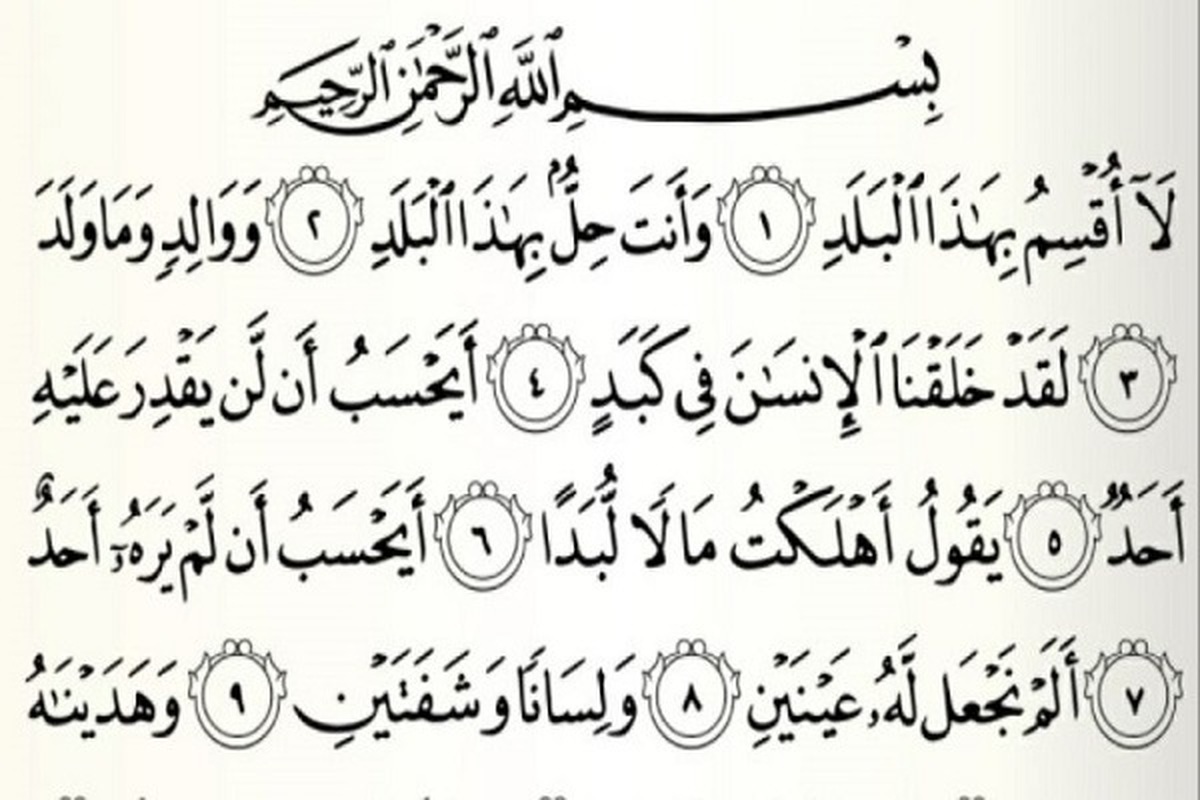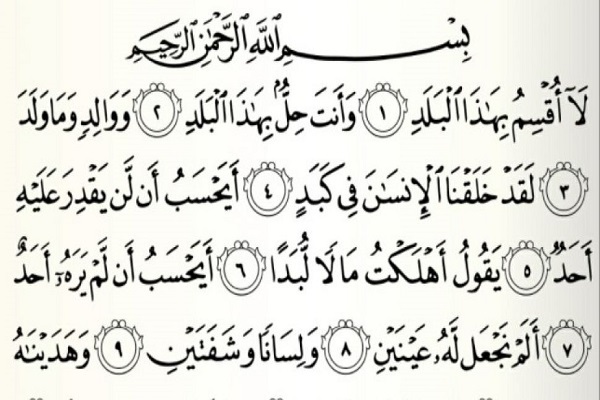Prerequisite for Attaining Ultimate Happiness


According to one verse of Surah Al-Balad, though, there is a prerequisite for attaining happiness.
Al-Balad is the 90th chapter of the Quran that has 20 verses and is in the 30th Juz.
It is Makki and the 35th Surah revealed to the Holy Prophet (PBUH).
Balad means land and city. In the first verse, God swears by Balad, referring to the city of Mecca, and hence the name of the Surah.
The main theme of Surah Al-Balad is the fact that mankind, from the moment of birth to the moment of death, will not have full happiness, comfort and peace without going through difficulties and adversities and that full happiness without hardships is only possible in the hereafter.
The Surah begins with God swearing by Mecca, which indicates the sanctity and great status of the city. It then points to difficulties in human life: “Verily We have created man into toil and struggle.” (Verse 4)
The Surah also refers to freeing slaves, feeding and helping the poor and caring for orphans as some of the most valuable deeds.
God, in this Surah, describes good-doers as the ‘Companions of the Right’ and evil-doers as the ‘Companions of the Left’.
The chapter begins with the phrase ‘La Uqsim’ and in the next verse refers to the presence of the Holy Prophet (PBUH) in Mecca. Most interpreters believe the phrase ‘La Uqsim’ means God swears by Mecca because of the sanctity of Mecca and the presence of the Holy Prophet (PBUH) in it.
Some others prefer the apparent meaning, saying La Uqsim bi Haza al-Balad means how can one swear by Mecca while they (the unbelievers) have no respect for the Holy Prophet (PBUH) in this city.
They compare this verse to Verse 75 of Surah Al-Waqeah: “I do not need to swear by the setting of the stars.” In the era of Jahilliyah (before the advent of Islam, people in Arabia would swear by stars and God has prohibited this. In Surah Al-Balad, too, this concept has been pointed out that the unbelievers of Mecca respect Mecca but not the Holy Prophet (PBUH).
Verse 3 “By the great father and his wonderful son,” can be said to uphold this view. Some interpreters say this verse refers to Prophets Abraham and Ismail.
Verse 4 says: “Verily We have created man into toil and struggle.” It is related to the previous verse as it shows that just like there are many hardships on the path of reaching the Kaaba in Mecca, there are many adversities and difficulties in life on the path of reaching God.
It indicates that the prerequisite for attaining lasting happiness is going through and enduring hardships and adversities.


